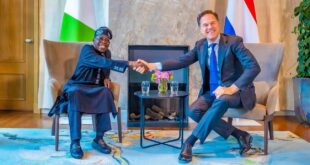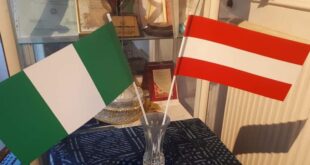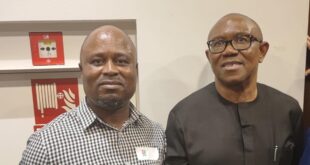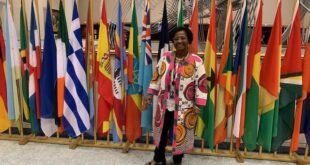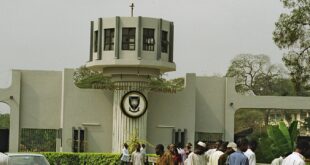At the Italy-Africa Summit, Rome promotes its plan to create jobs and opportunity in Africa and discourage its young people from making dangerous journeys across the Mediterranean Sea. Africa demands action instead of empty promises.
Italy, which has just assumed the Presidency of the G7, has unveiled a €5.5 billion plan to support African development, which it hopes will stem migration flows from the continent, at the Italy-Africa Summit in Rome on Monday (29 January).
Italian Prime Minister Georgia Meloni called for a new Italian partnership with Africa at the 2-day meeting, attended by more than 20 heads of state and government from Africa as well as government representatives from around 20 other African countries and members of the executive boards of organisations such as the World Bank, the United Nations and the African Development Bank Group.
In her opening remarks, Meloni said that Italians wanted to open a “new page of history” in their cooperation. In Europe, there is too much talk about the right to migrate, but not about “the right not to be forced to leave one’s homeland.” She had already emphasised at the beginning of the year that relations with Africa were at the top of the Italian government’s list of priorities.
“Certain distorted narratives need to be dismantled first, like the one of Africa allegedly being a poor continent, because that is not the case. Africa is not a poor continent at all: it has 30% of the world’s mineral resources and 60% of its arable land. 60% of its population are under the age of 25, making it the world’s youngest continent, and this also means it has enormous potential in terms of human capital,” the Italian leader said.
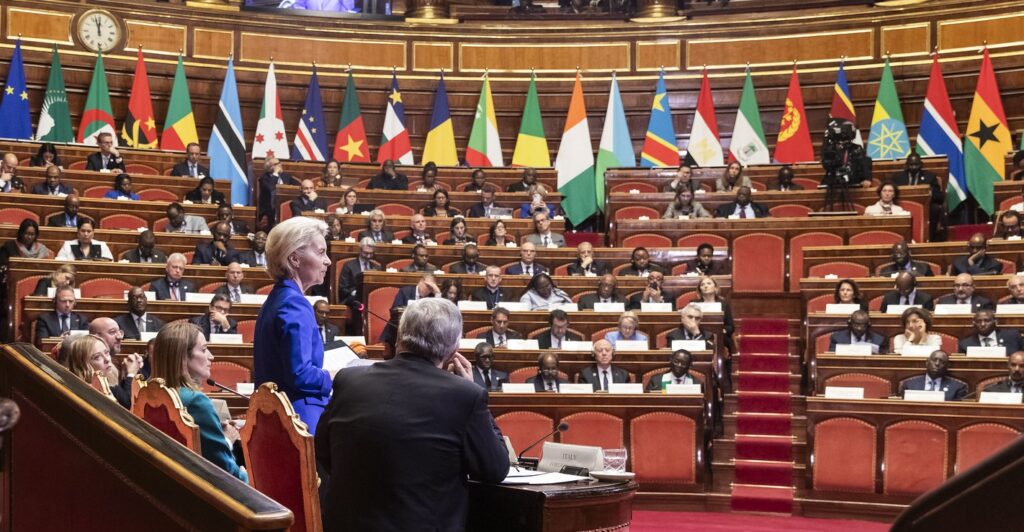
“We believe it is possible to envision and write a new chapter in the history of our relationship, a cooperation among equals, far from any predatory imposition or charitable stance towards Africa. There is a natural inclination for Italy to be a bridge between Africa and Europe. The whole world cannot think about the future without Africa.”
The Italian leader announced an Italian plan that will seek cooperation with Africa in areas such as energy, education, health care and agriculture. The plan, named after Enrico Mattei, founder of state-controlled oil and gas giant Eni, is expected to curb African emigration to Europe. “Human traffickers will never be defeated, if the causes that push a person to abandon their home are not addressed upstream,” Meloni said in her speech.
Under the Mattei Plan, Italy will earmark 5.5 billion euros for investments and development projects in African countries, including Tunisia, Egypt, Mozambique and Kenya.
African Union Commission Chairperson Moussa Faki welcomed the pledged support. He, however, noted that prior consultation with the African continent would have been desirable, particularly when the Mattei Plan was being drafted. He said the plan, nonetheless, aligns with Africa’s priorities.
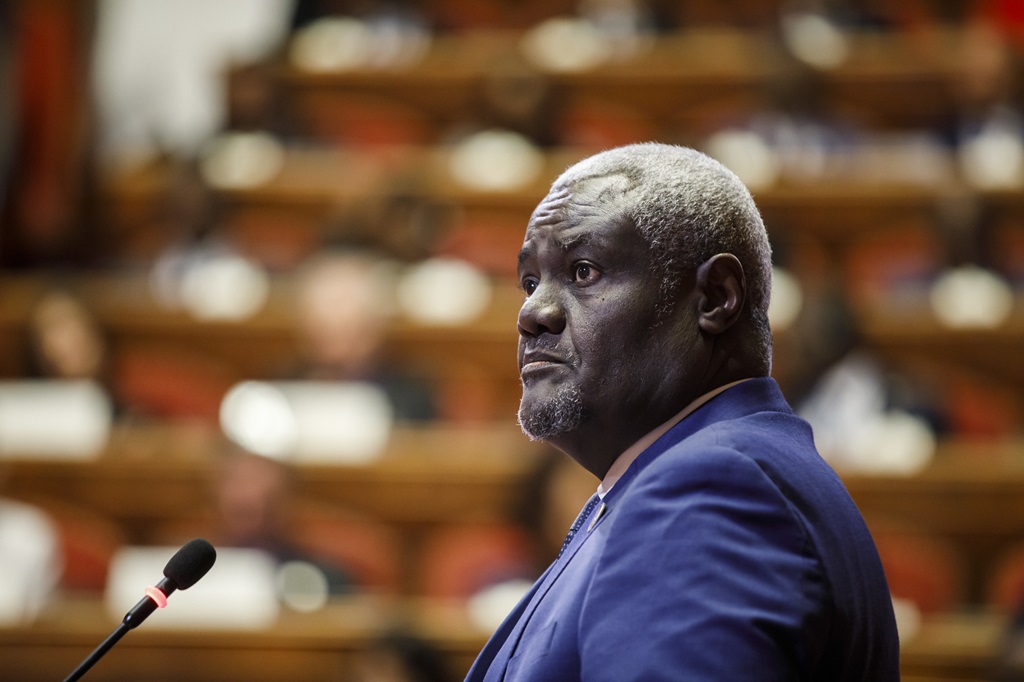
Faki, a former Prime Minister of Chad, admonished Europe on its failed promises in the past, remarking that “it’s also necessary to turn words into deeds, we are not satisfied with simple promises that are then not kept.”
In her speech, the President of the European Commission, Ursula von der Leyen, called for a united front in cracking down on people smugglers. “The best way to do this is to join forces and crack down on the criminals, and in parallel, build alternatives to the deadly smuggling routes,” she said.
Von der Leyen thanked the Italian government for putting cooperation with Africa at the top of the agenda for Italy’s G7 presidency. Italy’s plan for closer cooperation with Africa complements the European Union’s plans, particularly in the areas of energy and climate, local expertise and the fight against smuggling, she added.
The EU is also seeking closer cooperation with African countries in order to reduce the number of refugees travelling to Europe. Overall, 155,754 people arrived on Italian shores last year, more than half of them Africans.
The EU is offering funding to close borders and equipping the militaries of African countries to prevent people from fleeing. These pacts are being increasingly criticised in Africa and are also highly controversial among human rights activists in Europe. Critics accuse the EU of supporting dubious regimes with cash payments and military equipment at the expense of human rights.
African leaders who addressed the summit were the African Union Chairperson, President Azali Assoumani of Comoros, President Macky Sall of Senegal, Ghanian President Nana Akufo-Addo, Kenyan President William Ruto, President Denis Sassou-Nguesso of the Republic of Congo, and President Hassan Sheikh Mohamud of Somalia. Others were President Emmerson Mnangagwa of Zimbabwe, President Kais Saied of Tunisia, President Filipe Nyusi of Mozambique, President Isaias Afwerki of Eritrea, Prime Minister Abiy Ahmed of Ethiopia, and Prime Minister Ulisses Correa e Silva of Cabo Verde.
Other prominent figures who attended the Italy-Africa Summit included UN Deputy Secretary General Amina Mohammed, International Monetary Fund Managing Director Kristalina Georgieva, Akinwumi Adesina, President of the African Development Bank Group, and European Council President Charles Michel.
Femi Awoniyi
Read the full speech of Italian Prime Minister Georgia Meloni at the Summit HERE
 THE AFRICAN COURIER. Reporting Africa and its Diaspora! The African Courier is an international magazine published in Germany to report on Africa and the Diaspora African experience. The first issue of the bimonthly magazine appeared on the newsstands on 15 February 1998. The African Courier is a communication forum for European-African political, economic and cultural exchanges, and a voice for Africa in Europe.
THE AFRICAN COURIER. Reporting Africa and its Diaspora! The African Courier is an international magazine published in Germany to report on Africa and the Diaspora African experience. The first issue of the bimonthly magazine appeared on the newsstands on 15 February 1998. The African Courier is a communication forum for European-African political, economic and cultural exchanges, and a voice for Africa in Europe.








